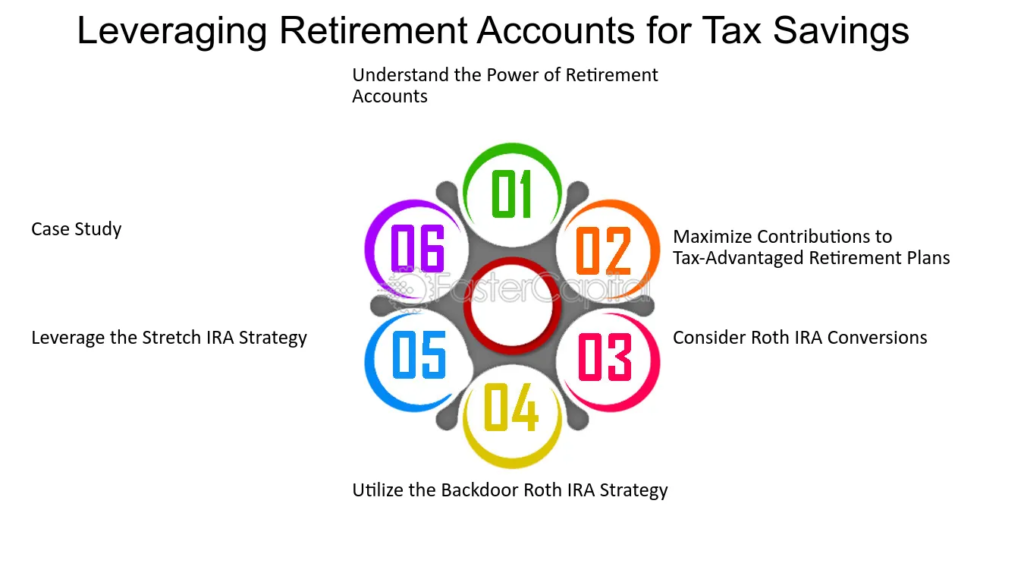Introduction
Tax planning is a crucial aspect of running a small business, as it can significantly impact your bottom line and overall financial health. By implementing effective tax planning strategies, small business owners can minimize their tax liabilities, maximize savings, and ensure compliance with relevant tax laws and regulations. In this guide, we’ll explore the top 5 tax planning tips for small business owners to help them optimize their tax outcomes and achieve their financial goals.
Top 5 Tax Planning Tips for Small Business Owners
1. Maximize Deductions
One of the most effective ways for small business owners to reduce their tax liabilities is by maximizing deductions. Take advantage of available deductions for business expenses, such as rent, utilities, supplies, equipment, and professional services. Keep detailed records and receipts for all business-related expenses, and work with a tax advisor or accountant to identify eligible deductions and ensure compliance with tax laws and regulations. By maximizing deductions, small business owners can lower their taxable income and potentially save thousands of dollars on their tax bills.

2. Utilize Tax Credits
In addition to deductions, small business owners should explore opportunities to utilize tax credits to further reduce their tax liabilities. Tax credits, such as the Small Business Health Care Tax Credit, the Work Opportunity Tax Credit, and the Research and Development Tax Credit, can provide significant savings for eligible businesses. Research available tax credits relevant to your industry and operations, and work with a tax professional to determine eligibility and maximize your tax savings.

3. Leverage Retirement Accounts
Small business owners can take advantage of retirement savings plans, such as 401(k) plans, SEP-IRAs, SIMPLE IRAs, and Solo 401(k)s, to reduce their taxable income and save for retirement. Contributions to these retirement accounts are typically tax-deductible and can grow tax-deferred until retirement. Explore the various retirement savings options available to small business owners and consider implementing a plan that aligns with your financial goals and objectives. By contributing to retirement accounts, small business owners can lower their current tax liabilities and secure their financial futures.

4. Stay Organized
Effective tax planning requires small business owners to stay organized and maintain accurate records of their finances throughout the year. Implement systems and processes for tracking income, expenses, receipts, invoices, and other financial transactions. Use accounting software or hire a professional bookkeeper to manage your finances and ensure compliance with tax laws and regulations. By staying organized and keeping detailed records, small business owners can streamline the tax preparation process, minimize errors, and maximize deductions and credits.

5. Seek Professional Guidance
Navigating the complexities of tax planning can be challenging for small business owners, so it’s essential to seek professional guidance from a qualified tax advisor or accountant. A knowledgeable tax professional can provide valuable advice, identify tax-saving opportunities, and ensure compliance with relevant tax laws and regulations. Work with a trusted advisor to develop a tax planning strategy tailored to your business needs and objectives, and regularly review your tax situation to make adjustments as needed.

Tax Planning Tips for Small Business Owners: FAQs
What are some common tax deductions for small business owners? Common tax deductions for small business owners include expenses such as rent, utilities, supplies, equipment, professional services, employee wages, benefits, travel expenses, and advertising costs. Additionally, small business owners may be eligible for deductions for home office expenses, mileage, business insurance, and retirement plan contributions.
How can small business owners reduce their tax liabilities through retirement savings?
Small business owners can reduce their tax liabilities by contributing to retirement savings plans such as 401(k) plans, SEP-IRAs, SIMPLE IRAs, and Solo 401(k)s. Contributions to these retirement accounts are typically tax-deductible, reducing taxable income and lowering current tax liabilities. Additionally, earnings in these accounts can grow tax-deferred until retirement, further maximizing savings.
What tax credits are available to small business owners?
Tax credits available to small business owners include the Small Business Health Care Tax Credit, the Work Opportunity Tax Credit, the Research and Development Tax Credit, and the Employee Retention Credit. These tax credits can provide significant savings for eligible businesses and help offset tax liabilities.
Why is it important for small business owners to stay organized for tax planning?
Staying organized is essential for small business owners to effectively manage their finances and maximize tax savings. By maintaining accurate records of income, expenses, and financial transactions throughout the year, small business owners can streamline the tax preparation process, minimize errors, and ensure compliance with tax laws and regulations.
How can small business owners find a qualified tax advisor or accountant? Small business owners can find a qualified tax advisor or accountant by asking for referrals from trusted colleagues, friends, or business associates. Additionally, they can search online directories or professional organizations such as the American Institute of Certified Public Accountants (AICPA) or the National Association of Tax Professionals (NATP) to find professionals with expertise in small business taxation.
Conclusion
Effective tax planning is essential for small business owners to minimize tax liabilities, maximize savings, and achieve their financial goals. By implementing the top 5 tax planning tips outlined in this guide, small business owners can optimize their tax outcomes, reduce compliance risks, and focus on growing their businesses with confidence and peace of mind.
